
OTHER PUBLICATIONS- 2024
|
|
ICAR-CTCRI Telephone Directory |
|
|
ICAR-CTCRI SKILL TRAINING CALENDAR 2024-2025 |
FOUNDATION DAY PUBLICATIONS
|
3 A's of ICAR-CTCRI |
Policy brief biotechnology |
|
Compendium on diseases and pests in Tropical Tuber Crops in India |
Healtthy foods from tubers and millets |
|
OFSP Hindi Booklet |
Vacuum fried chips_English |
|
Vacuum fried chips_Malayalam |
Technical bulletin
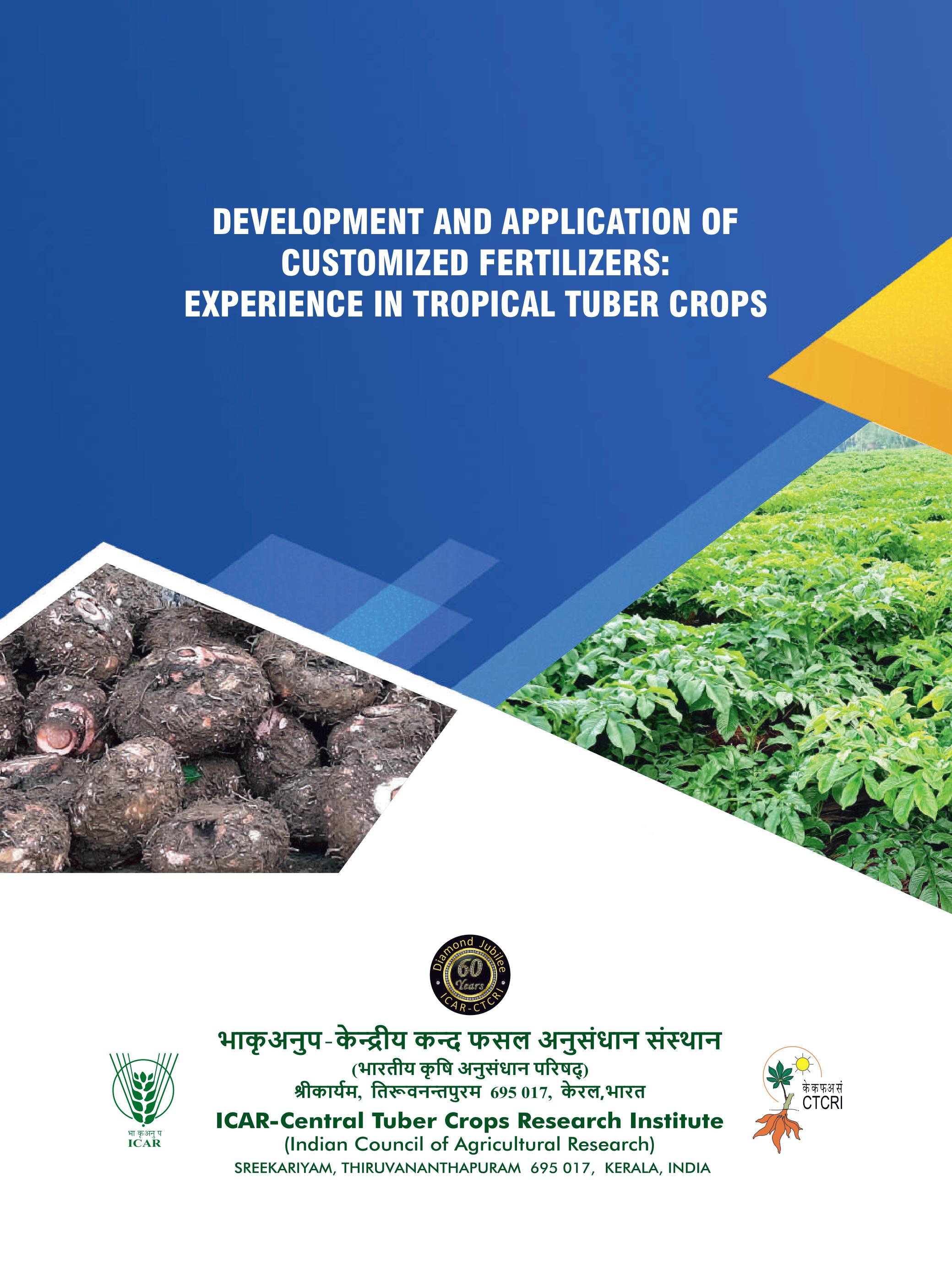
|
DEVELOPMENT AND APPLICATION OF CUSTOMIZED FERTILIZERS: EXPERIENCE IN TROPICAL TUBER CROPS |
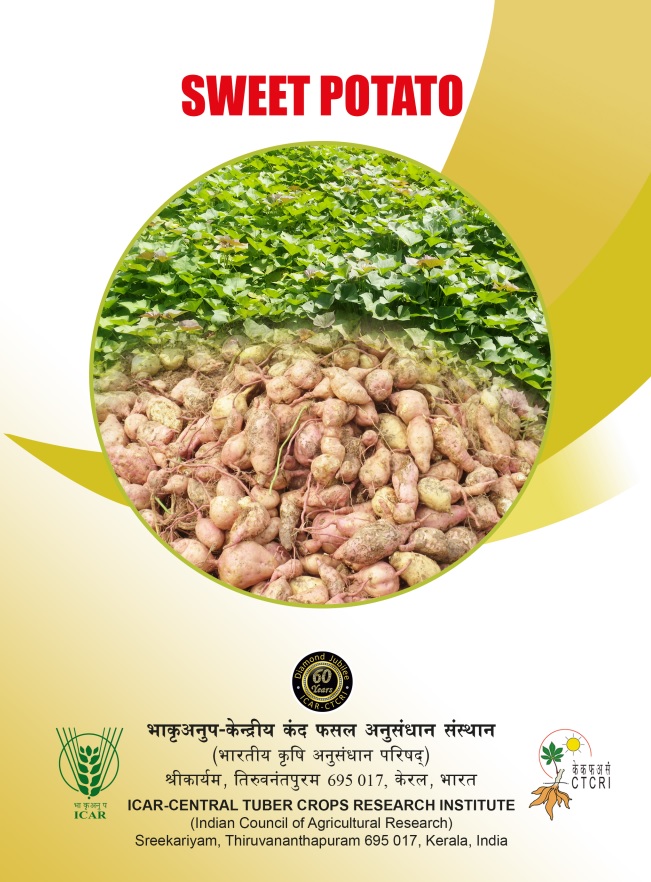
|
SWEETPOTATO |
Technical Folders
|
|
COLLAR ROT OF ELEPHANT FOOT YAM |
|
GREEN TECHNOLOGY FOR GREEN ENVIRONMENT |
|
|
LEAF BLIGHT OF TARO |
|
MANAGEMENT OF MEALYBUGS IN CASSAVA |
|
|
OSOP AND OTOS OF ICAR-CTCRI |
|
PROFILE OF ICAR-CTCRI WHEN IT TURNS 60 |
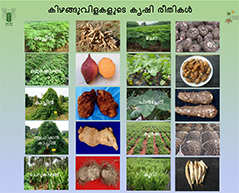 |
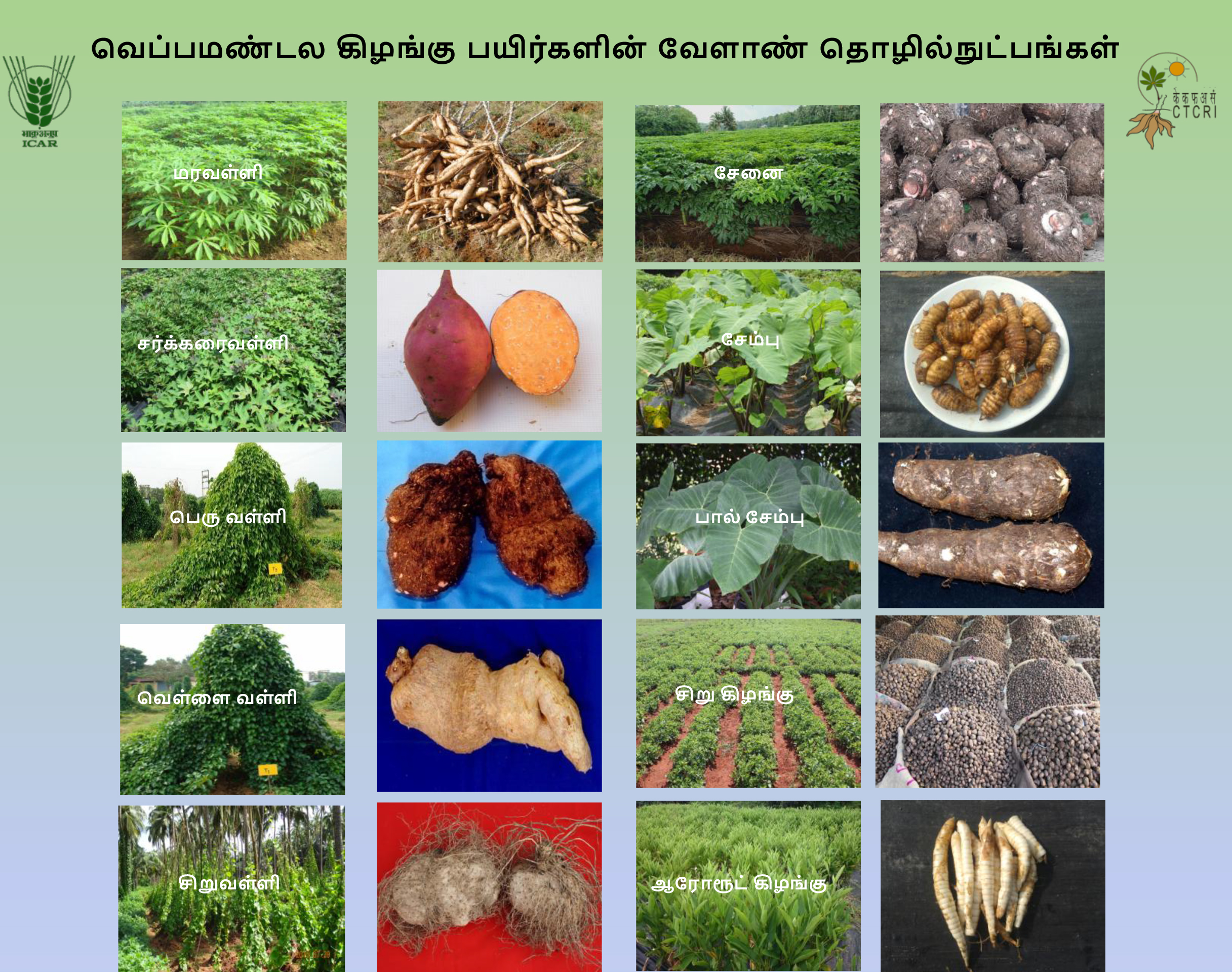 |
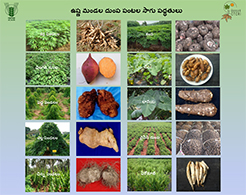 |
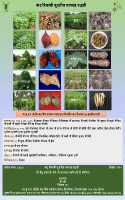 |
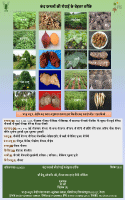 |
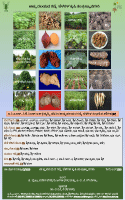 |
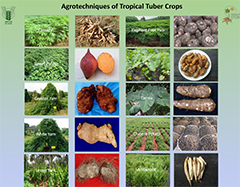 |
Agroadvisory |
Technical Leaf
|
|
Postharvest Physiological Deterioration in Cassava English |
|
Postharvest Physiological Deterioration in Cassava Hindi |
|
|
|
Postharvest Physiological Deterioration in Cassava Malayalam |
|
Postharvest Physiological Deterioration in Cassava Tamil |
|
|
|
Sree Hira |
|
Sree Telia |
Deluge of August 2018 in Kerala State, India: Changes in Soil Properties
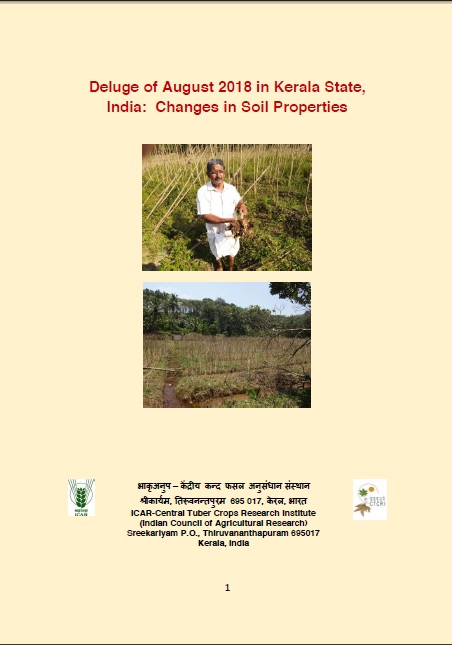
The ICAR-CTCRI has taken up the responsibility of visiting the flood ravaged areas in all 14 districts of the state to have a realistic assessment of the loss of tuber crops, which is one of the most important groups of crops grown and relished by Keralites. A group of 28 scientists and technical officers of the Institute visited the flood ravaged areas in all 14 districts during 7-12 September 2018 and surveyed the extent of loss caused to different tuber crops. The ground truth data collated with secondary data available at Department of Agriculture, Village Office and Panchayat/Municipality/Corporation Office and a final analysis of the loss of different tuber crops and economic loss to farmers was done. In order to make the data presentable, thematic maps using GIS software were also prepared. This report presents the results of the detailed study with recommendations to rehabilitate the tuber crop farmers of Kerala.
Post-flood loss assessment and rehabilitation of tuber crops in Kerala
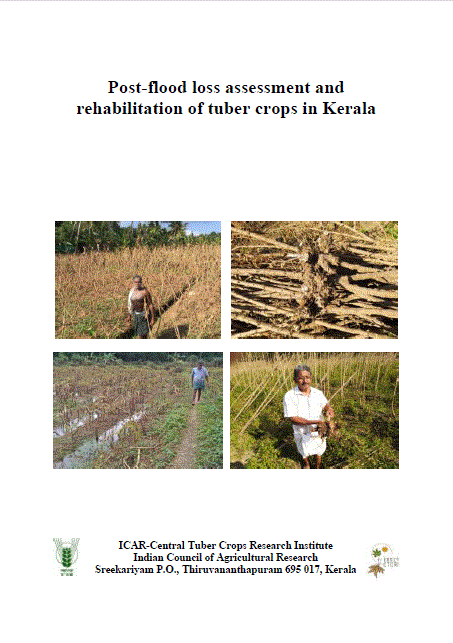
Report on 'Post-flood loss assessment and rehabilitation of tuber crops in Kerala', prepared based on detailed survey, data collection and analysis of flood affected areas in Kerala during 7-12 September 2018 by a team of 28 scientists and technical staff of the Institute.
Agro-Advisory Guide
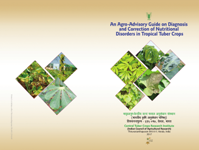
Soil degradation with respect to nutrient depletion due to crop mining and anthropogenic interventions has affected the soil health. As a result, different kinds of nutritional disorders are becoming common in crop plants. Tropical tuber crops like cassava, sweet potato, yams and aroids are no exception to it as they are heavy feeders of nutrients due to their innate biological efficiency and high yield potential. This publication will help in identifying the nutrient related common deficiency, toxicity symptoms and their management in major tropical tuber crops like cassava, sweet potato, elephant foot yam, lesser yam and tannia. This user friendly technical guide will serve the purpose for the stake holders to whom it was intended.
VISION 2050
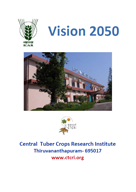
CTCRI Vision 2050 provides an oppurtunity to evaluate the relevance of tropical tuber crops in food security by introspecting the accomplishment and visualizing the challenges this sector may face in future. It also critically examines possible scenario of operating environment vis-a-vis new opportunities and defines goals and targets of the Institute accordingly.
STARTING A CASSAVA FARM
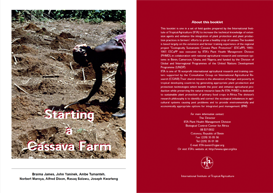
This booklet is one in a set of field guides prepared by the International Institute of Tropical Agriculture (IITA) to increase the technical knowledge of extension agents and enhance the integration of plant protection and plant production practices in farmers’ efforts to grow a healthy crop of cassava.
ANNUAL PERFORMANCE EVALUATION REPORT

Annual Performance Evaluation Report of ICAR-Central Tuber Crops Research Institute for the year 2011-2012 is hereby recommended by the RFD Committee of the Institute. The Institute publishes its annual report every year giving the detailed report of the research projects handled by the Scientists. Detailed Report on the performance in the coordinated centres under the AICRP TC is also published separately.
CASSAVA FRIED CHIPS

Fried cassava chips presently available in the market are often too hard to bite and bear no comparison with the potato chips. This leads to poor acceptability of the product and lower price. Research at ICAR-CTCRI has shown that excellent quality fried chips can be made.
STATUS OF CASSAVA IN INDIA - AN OVERALL VIEW

Roots and Tubers have critical roles to play in fulfilling the multifaceted needs of the people contributing to food security and poverty eradication. In this endeavor, research partnership, capacity building and policy support for these crops assume significance. Cassava has phenomenal biological potential. The vision for cassava is that it will spur rural industrial development and raise income for farmers, processors and traders besides satisfying the consumers. A National strategy is therefore called for Cassava- Production- Processing- Marketing continuum in specific agro-ecological zones
TOWARDS BROWN REVOLUTION
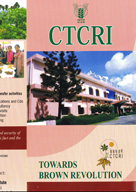
Research on tropical tuber crops is the primary mandate of ICAR-CTCRI. Each division CTCRI concentrate its research programmes on separate aspects of tuber crops. Crop improvement division focus its activities on collection germplasm of different tuber crops from different parts of the world and conserving it in field gene bank as well as in vitro. Development of new varieties of tuber crops with higher yield and other attributes suitable for industrial applications as well as for food purpose is another important activity of this division.
CITIZEN'S/CLIENT CHARTER

Our Vision is to Produce tuber, reduce hunger and improve livelihood of the poor.
Our Mission is to make Tropical Root and Tuber Crops as part of food and nutritional security for ever growing food-insecure population by increasing productivity and securing income, health and sustainability
© ICAR-Central Tuber Crops Research Institute 2013 | All Rights Reserved

